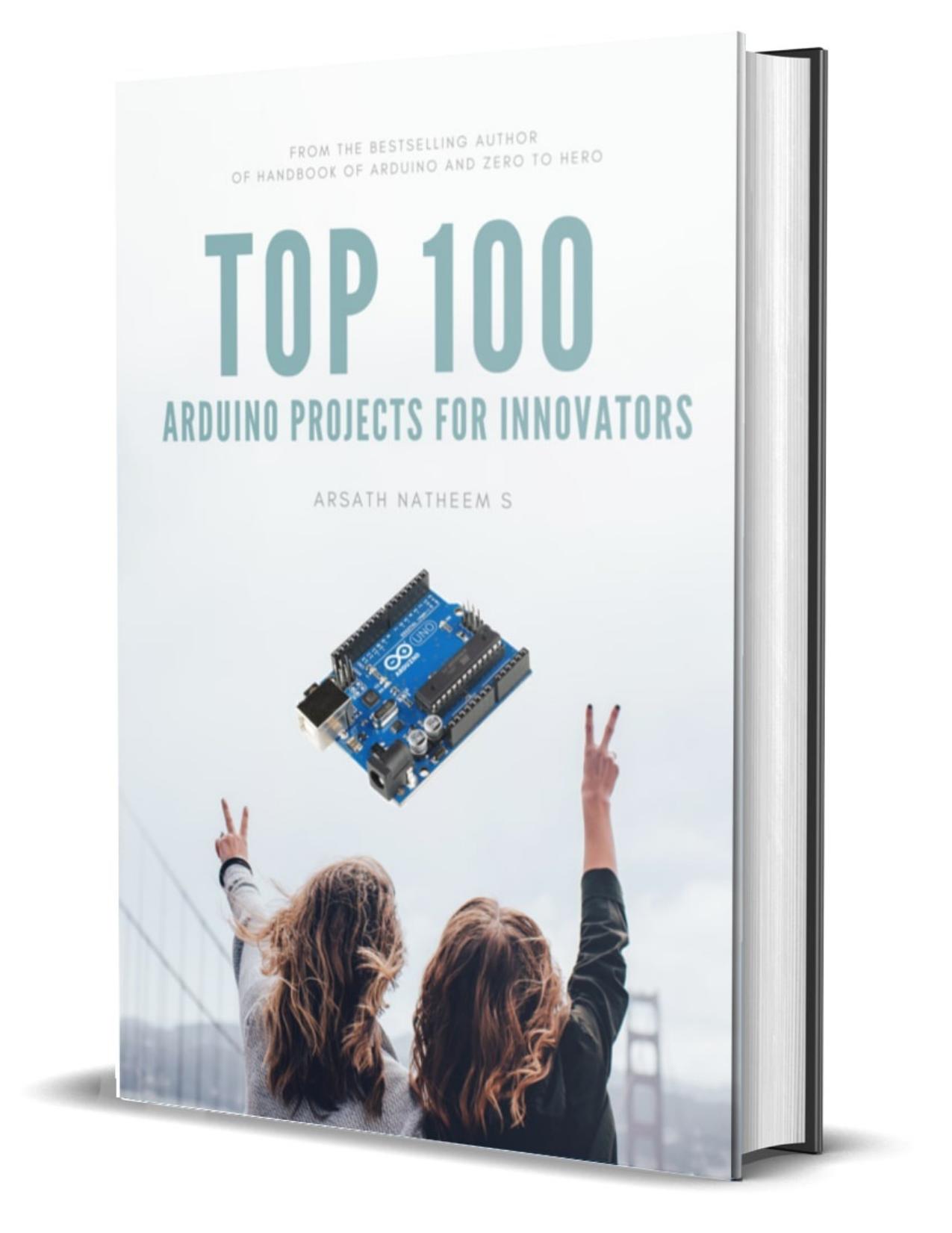
TOP 100 ARDUINO PROJECT FOR INNOVATORS: Getting started with Arduino Projects and Fast-track your learning PDF
438 Pages·2021·33.4149 MB·other
Most books are stored in the elastic cloud where traffic is expensive. For this reason, we have a limit on daily download.
Preview TOP 100 ARDUINO PROJECT FOR INNOVATORS: Getting started with Arduino Projects and Fast-track your learning
Description:
TOP 100 ARDUINO PROJECT FOR INNOVATORS: FASTRACK YOURLEARNING : ARDUINO PROJECT BOOK
Learn all about making Arduino projects with this project book designed for novice and expert level students. It is beneficial for research scholars as well as novice students. This project book was written for people who are enthusiastic about using open-source tools and techniques to create innovative projects. It is a vast book offering an abundance of ideas for new projects, new ways to improve the world, and new ways to make life a little better.
The book consists of six chapters and begins with
[list]
[*]Getting started with Arduino
[*]Interfacing electronic components with an Arduino
[*]Different types of sensors and Arduino boards
[*]How to get started with Arduino programming
[*]Afterwards, you will go through 100 fascinating project ideas
[*]And finally, troubleshooting Arduino.
[/list]
These Arduino project books will be useful for students and research scholars in their mini projects. In addition to the operational basics for open-source electronics, it also covers practical schematic drawings to help college, high school, and hobbyist students learn the Arduino from the very basic level to the very advanced. Hopefully, this book will be a wonderful guide for science fair projects and their innovative new ideas.
WHY YOU SHOULD READ THIS BOOK
When we think about the word ‘Education’, we often think of the formal schooling that happens in primary, secondary and high schools and colleges. Although, this is not the only way of learning to acquire knowledge. Tacit knowledge can often be gained through addressing real world problems and practicing, and it is based on experience, intuition, ideals, creative thinking, emotions, values, skills, and attitudes. Through Arduino Education, we provide schools with the next generation of STEAM programs and tacit knowledge to guide and empower students on their unique learning journeys through secondary school, high school, and university.
Students will benefit from Project Based Learning as it promotes cooperative education and creates a deeper impact on students and teachers. Arduino is a simple-to-use application for beginners and is flexible enough for advanced users, teachers, faculty and scholars to construct high-quality scientific devices. Additionally, students are able to comprehend more in a group setting since they can learn it together. In this regard, let us consider a number of simple projects related to Arduino sensors that can increase students' innovative skills. Students can develop their practical mindsets and ways of thinking through the Arduino project, since it always works and makes improvements to the existing system.
“Tell me and I forget, teach me and I may remember, involve me and I learn” -- Benjamin Franklin
Learn all about making Arduino projects with this project book designed for novice and expert level students. It is beneficial for research scholars as well as novice students. This project book was written for people who are enthusiastic about using open-source tools and techniques to create innovative projects. It is a vast book offering an abundance of ideas for new projects, new ways to improve the world, and new ways to make life a little better.
The book consists of six chapters and begins with
[list]
[*]Getting started with Arduino
[*]Interfacing electronic components with an Arduino
[*]Different types of sensors and Arduino boards
[*]How to get started with Arduino programming
[*]Afterwards, you will go through 100 fascinating project ideas
[*]And finally, troubleshooting Arduino.
[/list]
These Arduino project books will be useful for students and research scholars in their mini projects. In addition to the operational basics for open-source electronics, it also covers practical schematic drawings to help college, high school, and hobbyist students learn the Arduino from the very basic level to the very advanced. Hopefully, this book will be a wonderful guide for science fair projects and their innovative new ideas.
WHY YOU SHOULD READ THIS BOOK
When we think about the word ‘Education’, we often think of the formal schooling that happens in primary, secondary and high schools and colleges. Although, this is not the only way of learning to acquire knowledge. Tacit knowledge can often be gained through addressing real world problems and practicing, and it is based on experience, intuition, ideals, creative thinking, emotions, values, skills, and attitudes. Through Arduino Education, we provide schools with the next generation of STEAM programs and tacit knowledge to guide and empower students on their unique learning journeys through secondary school, high school, and university.
Students will benefit from Project Based Learning as it promotes cooperative education and creates a deeper impact on students and teachers. Arduino is a simple-to-use application for beginners and is flexible enough for advanced users, teachers, faculty and scholars to construct high-quality scientific devices. Additionally, students are able to comprehend more in a group setting since they can learn it together. In this regard, let us consider a number of simple projects related to Arduino sensors that can increase students' innovative skills. Students can develop their practical mindsets and ways of thinking through the Arduino project, since it always works and makes improvements to the existing system.
“Tell me and I forget, teach me and I may remember, involve me and I learn” -- Benjamin Franklin
See more
The list of books you might like
Most books are stored in the elastic cloud where traffic is expensive. For this reason, we have a limit on daily download.
